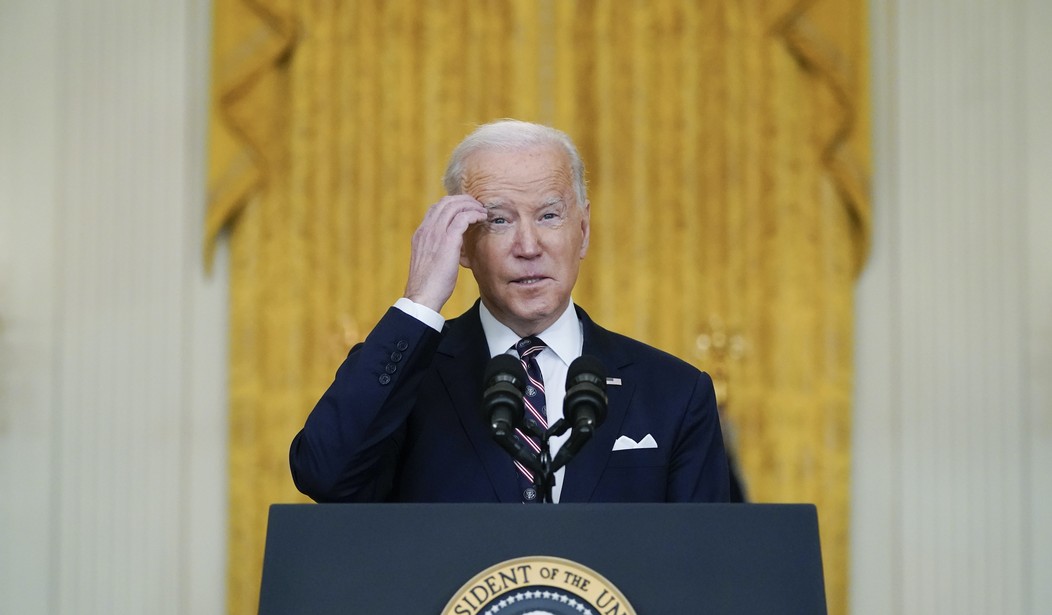Functionally, recessions get identified by the National Bureau of Economic Research (NBER). Popularly, recessions get defined after two successive quarters of contraction — and we’ve already had one, albeit a highly technical contraction that still showed overall economic growth. Next week’s GDP report may well tell us that a real contraction is underway, although employment numbers still say the opposite.
But what about American consumers? Do they think we’re in a recession? A new IBD/TIPP poll says yes, and that might end up being a self-fulfilling prophecy:
58% of Americans think we are in a recession, according to our latest Investor’s Business Daily/TIPP Poll of 1,643 Americans taken in early July.
One in five (21%) thinks we are not in a recession and another 20% are not sure.
The share of those who believe the economy is in a recession crossed 50% in June. It had been hovering below the 50% level since January 2021.
Our finding that many Americans believe we are in a recession is worrisome because self-fulfilling prophecies can affect business cycles. If consumers and businesses who hold this viewpoint cut back on spending, it could lead to a recession.
This trend has been accelerating as inflation keeps ticking up. The number of people who think we’re in a recession has gone up ten points in three months, mainly from the “not sure” category, which has dropped eight points in the same period. The number of respondents who say “no” to the question of being in a recession has remains statistically stable over the same three months.
That’s not quite the case when it comes to whether the economy is improving. The percentage of respondents who say “no” has also jumped up ten points to 68%, while the percentage of respondents who believe the economy is improving has dropped nine points to 20%. [One in five Americans think this economy is improving. Wrap your brain around that — Ed] On this question, it’s the “not sure” response that has remained statistically stable.
The IBD/TIPP line chart on economic perception shows that this erosion in confidence has been underway for almost eleven months. Take a look at this inflection point, too:

This may be coincidental, but those lines crossed in August — at the same time as Joe Biden’s disastrous withdrawal from Afghanistan. That didn’t have any discernible economic impact, but it may well have had a massive psychological impact on consumers. It shows that the confidence-crisis cascade Biden initiated impacted more than just his job approval and favorability numbers. It impacted the confidence in the American economy too, even while inflation was relatively low and economic growth still looked strong.
That confidence crisis appears to be mainly what’s still being measured, but not entirely. There is a real reason for a feeling of recession behind this, which is the erosion of buying power from over a year of corrosive inflation rates. Only 19% say that their household earnings have kept pace with inflation, with 54% saying it hasn’t. In practical terms, it’s worse. Three out of four respondents report having to cut back on spending. Among that 75%, 91% have reduced restaurant eating, 70% have cut back on groceries, 73% have reduced charitable donations, and 89% have changed plans for travel and vacations.
And that may well lead the way to a recession, technical or otherwise:
Consumer spending accounts for two-thirds of Gross Domestic Product (GDP). The GDP measures the value of the final goods and services produced in the U.S. (without double counting the intermediate goods and services used to produce them).
As Americans cut their expenses to cope with inflation, consumer spending decreases, leading to a contraction in the GDP.
Does this make any upcoming recession a self-fulfilling prophecy? Probably, but then again, that doesn’t make it any less of a recession. It doesn’t even make it irrational or avoidable, for that matter. Inflation is eroding buying power, which means lower- and middle-income households do have to cut back on spending in order to keep afloat. Until inflation gets back under control and wages rise to the new normal on prices, a consumer-led recession is inevitable. And it might last a while, too, since it will take a long time for wages to restore the lost buying power of the past 15 months.








Join the conversation as a VIP Member